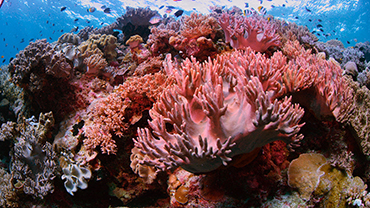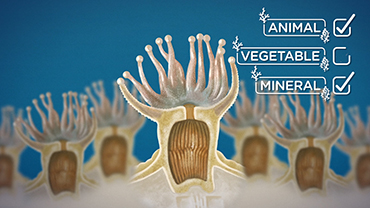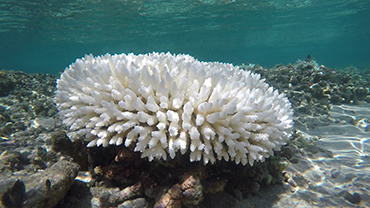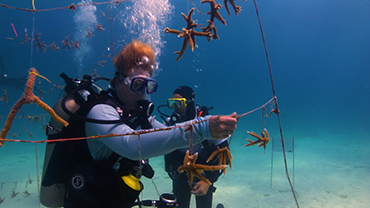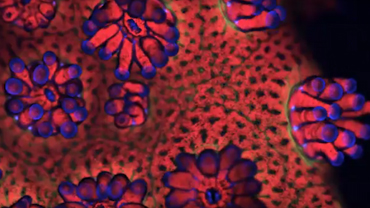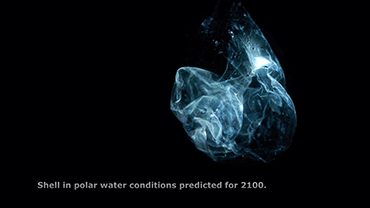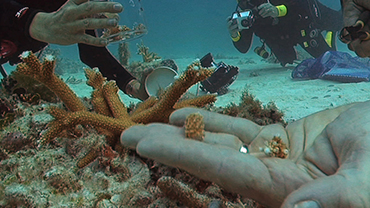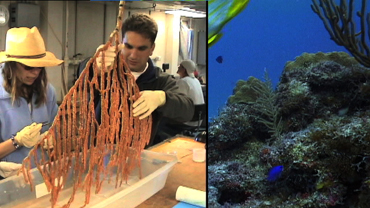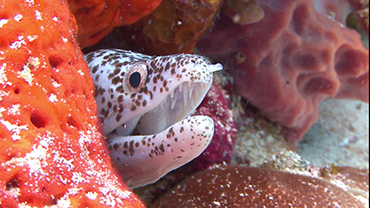Transcript
NARRATOR:
Sigourney Weaver:
Scientists refer to ocean acidification as the other carbon problem. The first, of course, is global warming.
Lisa Suatoni:
People have heard about global warming for decades, but it's only over the past five years that experts really understood that the carbon dioxide is causing a problem for the oceans as well.
Ken Caldeira:
When we burn coal, oil, and gas, we introduce carbon dioxide into the atmosphere, but the atmosphere touches the ocean over 70 percent of Earth's surface, so this carbon dioxide we're putting into the atmosphere we are also putting into the ocean.
Sigourney Weaver:
What happens when so much carbon dioxide, 22 millions tons of it each day, mixes with ocean water? In terms of chemistry, the answer is simple: it becomes an acid.
Lisa Suatoni:
Since the industrial revolution, the ocean acidity has increased by 30 percent. If we continue to pollute as we are right now, the ocean acidity will double by the end of the century compared to pre-industrial times. That is a big problem.
Sigourney Weaver:
Thousands of ocean species build protective shells to survive. These organisms create their shells by drawing certain molecules from the water around them, but rising acidity depletes those molecules. And when acidity gets too high, shells dissolve.
O. Hoegh-Guldberg:
We know that coral reefs are particularly sensitive to ocean acidification, and the reason for that is that corals are unable to form their skeletons as quickly as they used to, and reefs are starting to crumble and disappear. We may lose those ecosystems within 20 or 30 years. And in those structures live an estimated million species.
Sigourney Weaver:
There's growing alarm that higher acidity will extinguish creatures that are a basic food source for fish. In many parts of the world, fish are a basic food source for people. The only way to stop acidification is to emit less carbon dioxide. But the ocean can better defend itself against rising acidity and temperature if its systems are healthy.
Lisa Suatoni:
That means restoring depleted fish populations, establishing marine protected areas all around the globe, and reducing pollution, particularly nutrient pollution, in the coastal zones.
Steve Palumbi:
Today, we're in a really remarkable history of the ocean. We know how to solve the local problems of marine ecosystem health. We know how to solve the global problem. The question is, will we?
 An official website of the United States government.
Here's how you know we're official.
An official website of the United States government.
Here's how you know we're official.


